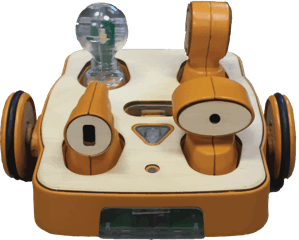
| Example #1: A child admits to a peer that he does not know how to scan the KIBO blocks. |
| Example #2: Two children work together on programming KIBO, but only one child receives praise from the teacher at share time. The child receiving praise points out to the teacher that she worked with a partner and that they should both receive recognition. |
| Example #3: A child leaves his KIBO kit out at the end of KIBO time. When he returns from recess and the teacher asks who didn’t clean up, and he is honest and says it was him. |
Teacher Insights on Practicing Honesty
The following excerpts were taken from interviews with teachers who were asked to describe instances in which their preschoolers practiced honesty, as well as times in which the teacher personally practiced honesty while implementing the Coding as Another Language-KIBO curriculum.
Communicating to my co-teachers, if I really wasn’t feeling up to [KIBO] that day or I didn’t really understand it, or maybe we should find clarity before we talk to the kids. Saying that I can’t do it or I don’t understand it. I would love to hear them say that I didn’t understand because that gave
— Theresa, Pre-K Teacher
me as a teacher angles that really helped them.
Watch Honesty in Practice
Complimenting a Peer
A child compliments his peer’s impressive singing abilities.
Guided Questions for Observation
• How did programming foster honesty in this example?
